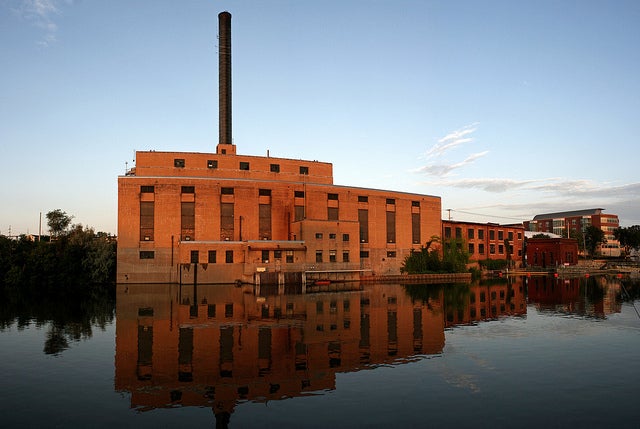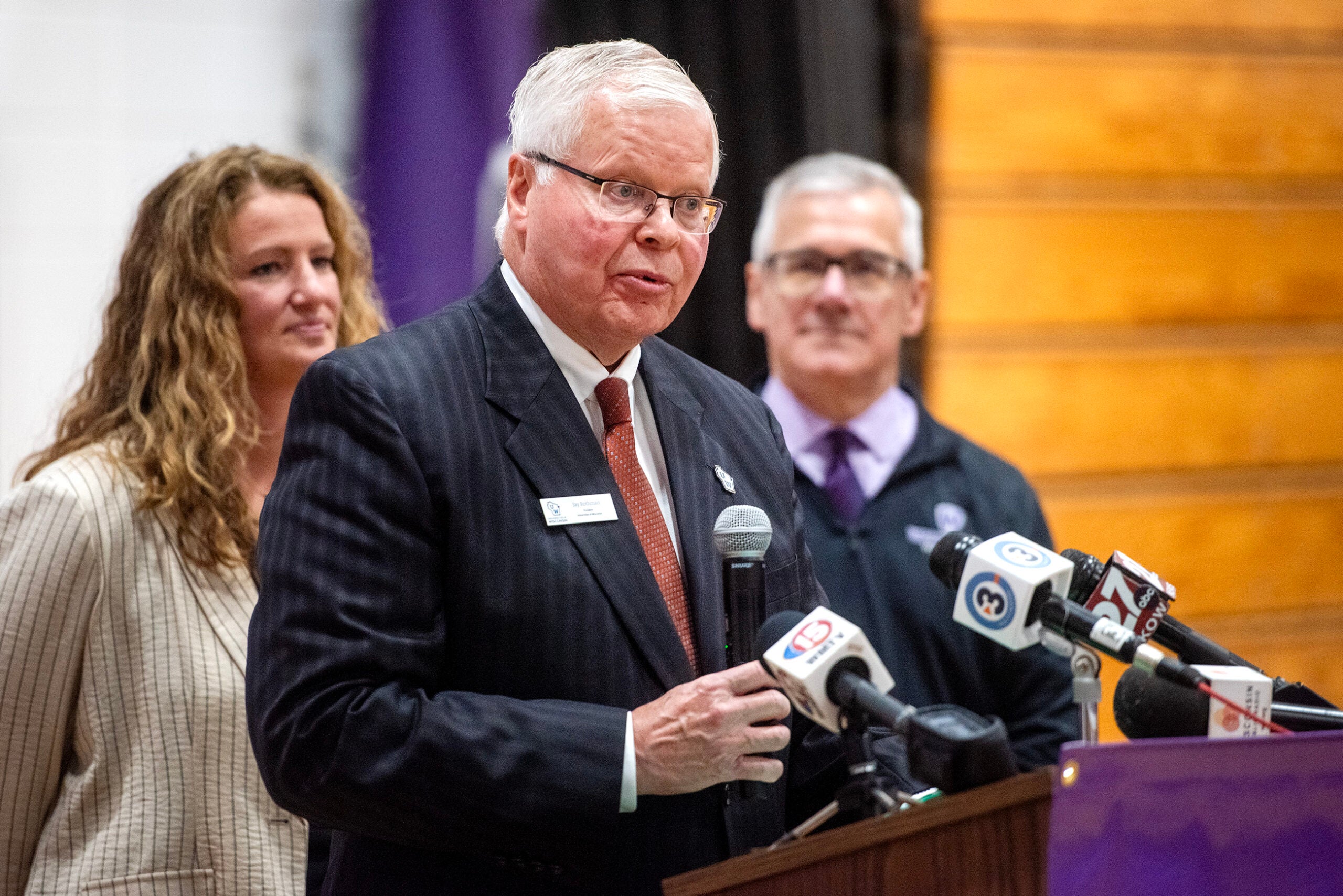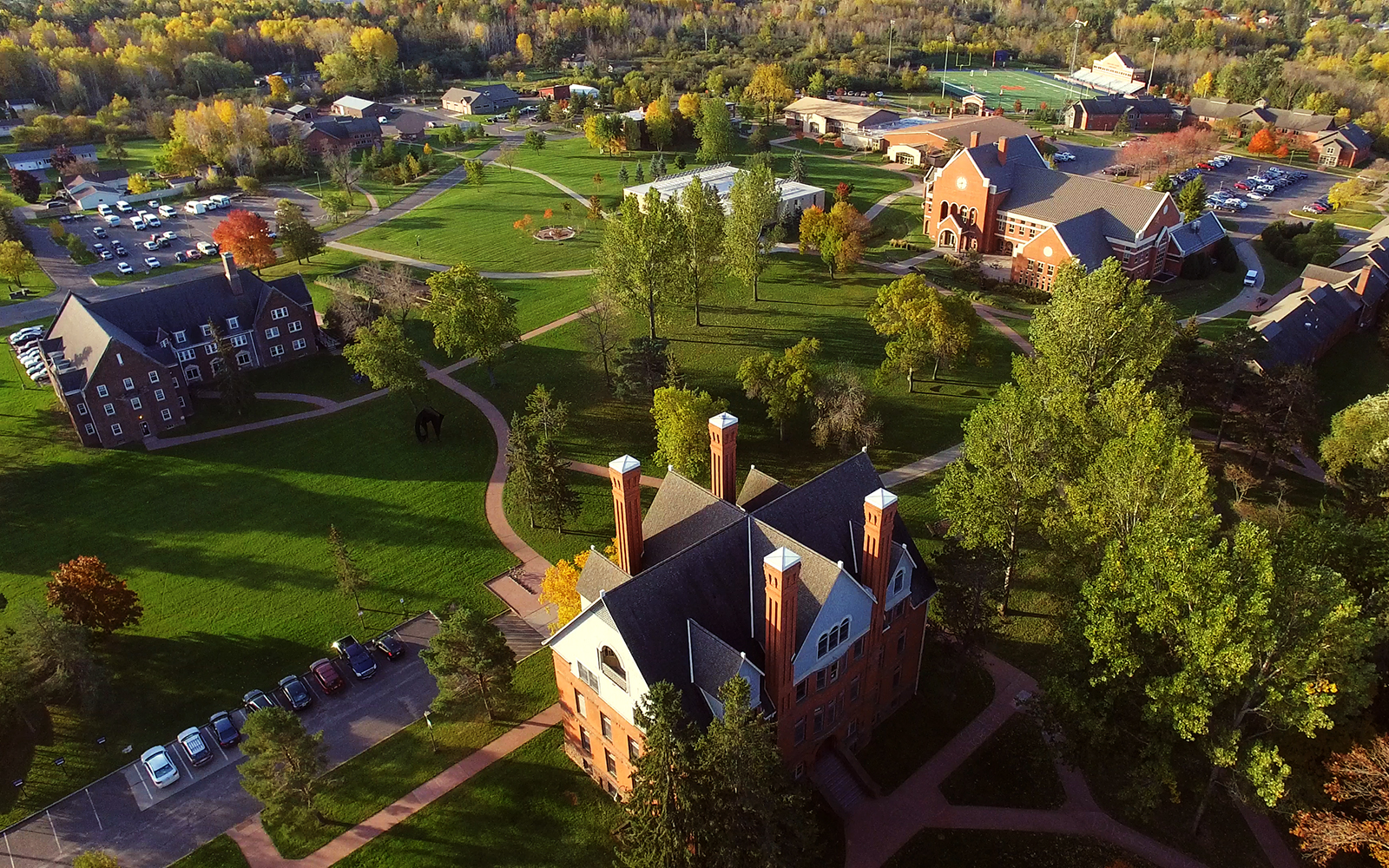Beloit College is converting a 100-year-old power plant into a “green” recreation center, reflecting a trend across the state of colleges repurposing old buildings to be environmentally friendly.
Beloit unveiled the design for what they’re calling the “Powerhouse” on Wednesday. The new facility will be made from the shell of a coal-fired electrical plant on the Rock River.
Scott Bierman, the president of Beloit College, said he got the idea as he jogged past the massive plant one day. He said he was thrilled, and a little surprised, to get such positive feedback.
News with a little more humanity
WPR’s “Wisconsin Today” newsletter keeps you connected to the state you love without feeling overwhelmed. No paywall. No agenda. No corporate filter.
“So it seemed like this amazing chance,” Bierman said. “And the fact that the first pass at this seemed to actually indicate that it might actually work for our purposes really sort of provoked the imagination of the community. And it was off to the races from there.”
Maura Donnelly, the University of Wisconsin System preservation officer, said the System has built about 20 to 30 new, certified “green” buildings over the last 10 years. Its main priority, though, is to repurpose and refit old buildings with “green” attributes, like what Beloit is doing.
“The most green building you can build is one you don’t build,” Donnelly said.
She said that UW campuses have turned hospitals, dining halls and gyms into other campus facilities.
Rolf Wegenke, president of the Wisconsin Association of Independent Colleges and Universities, said having green buildings on campus makes students more sensitive to environmental issues.
“We often think of teaching and learning as just the faculty,” Wegenke said. “And of course they’re essential, but buildings can teach, too.”
Wegenke pointed out that one of his association’s 23 members, Northland College in Ashland, Wisconsin, has a thermal-heated library and buildings on campus made from straw. He said they’ve been “at it for decades” there, which to him indicates that Wisconsin is a national leader for environmentally friendly building practices.
Scott Bierman said they hope to finish construction on the Powerhouse by 2018.
Wisconsin Public Radio, © Copyright 2025, Board of Regents of the University of Wisconsin System and Wisconsin Educational Communications Board.







